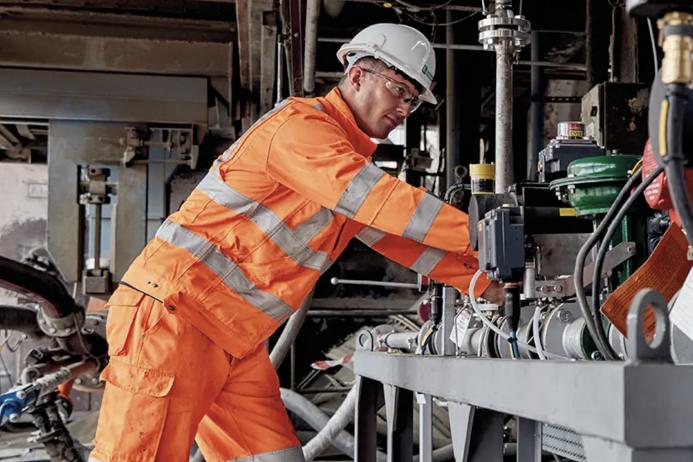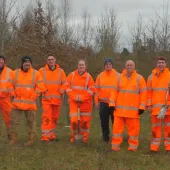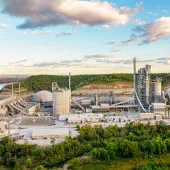Net-zero fuel trial success for Heidelberg Materials
Academic study confirms success of world-first hydrogen fuel trial Ribblesdale cement works
THE results of an academic research study have confirmed the success of the net-zero fuel trial carried out at Heidelberg Materials’ Ribblesdale cement works in Clitheroe, Lancashire.
The world-first trial, made possible by funding through the former Department for Business, Energy and Industrial Strategy (BEIS), provided through the Mineral Products Association (MPA), used a mix of 100% net-zero fuels – including hydrogen – to successfully operate a cement kiln.During the demonstration, the proportion of fuels in the cement kiln’s main burner was gradually increased to a wholly net-zero mix, which included tanker-delivered hydrogen, demonstrating a pathway to moving away from using fossil fuels in cement and concrete production.
The academic study, ‘Mixed hydrogen and biofuels cement clinker: characterisation, microstructure, and performance’, was carried out by academics Samuel Adu-Amankwah (Department of Civil Engineering, Aston University), Ben Douglas (School of Chemical and Process Engineering, University of Leeds), and Leslie Arkless (School of Chemistry, University of Leeds), with support from Heidelberg Materials’ technical strategy director Nina Cardinal and Heidelberg Materials Group’s team leader for scientific co-ordination, Maciej Zajac.
The study analysed the quality of the clinker and performance of cement produced during the trial and concluded ‘this study demonstrates that the investigated net-zero-fuel-produced clinker meets compositional and strength requirements for plain and blended cement, providing a feasible pathway for the cement industry to lower its operational carbon significantly’.
Marian Garfield, sustainability director at Heidelberg Materials UK, said: ‘We are already the largest producer of lower-carbon concrete in the UK, but using hydrogen in the fuel mix at our cement plants will help us eliminate the CO2 emissions associated with operational energy.
‘It is envisaged that combining the use of net-zero fuels with carbon capture and storage technology will enable the production of cement to capture more CO2 than it emits.’










